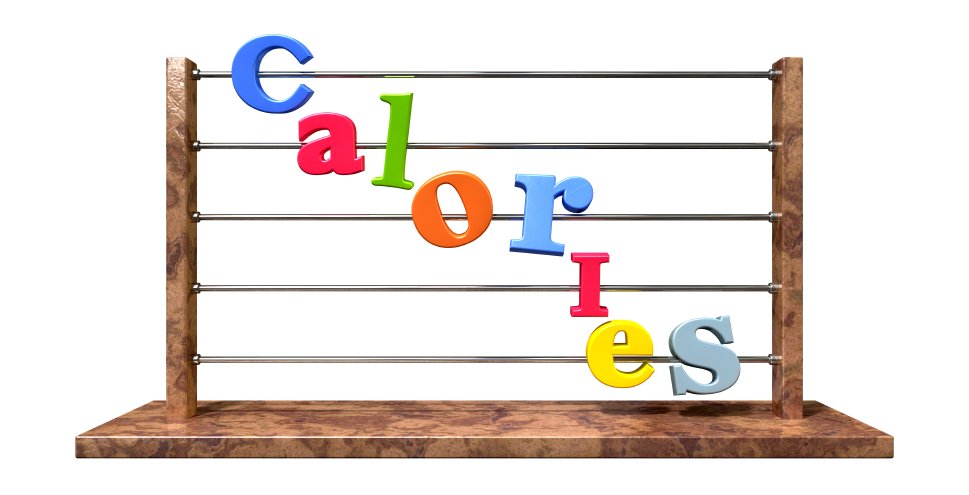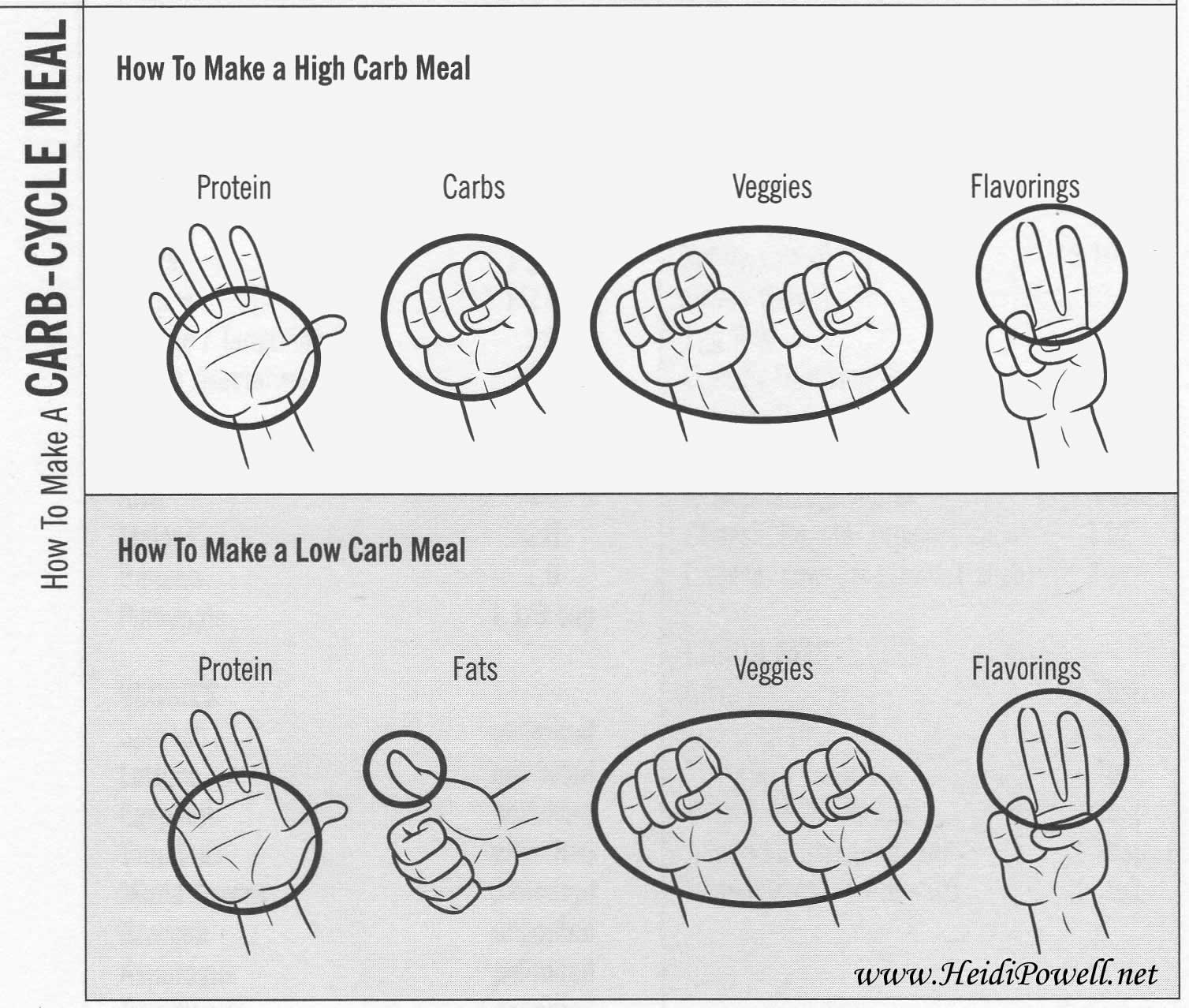You’ll find them in 99.99% of everything you eat and drink. They can be your greatest friends or your worst enemies. Eat fewer than you need and you lose weight. Eat more than you need and you gain weight. Yes, it is that simple.
Since calories affect everyone everyday, it?s important to understand them: what they are, what they do, and how to make them work for you instead of against you.
Some basic facts about calories:
- They represent the amount of energy in the foods you eat and drink.
- They are not partial to certain types of foods. A calorie from a carrot is the same as a calorie from a doughnut (although the carrot calorie is much healthier, of course!).
- Different types of foods are automatically higher in calories. Take 1 gram each of protein, carbohydrate, and fat. The grams of protein and carbohydrate each contain 4 calories, while the gram of fat has 9. Yes, that?s more than double the calories gram per gram. Yikes!
- One pound of fat = 3500 calories.
So how do you get calories on your side in your weight loss battle? First of all you need to know your Basal Metabolic Rate (BMR), which is the number of calories your body needs every day just to function properly?to breathe, circulate blood, adjust hormone levels, digest food, grow and repair cells, and so on. While there are several formulas to figure out your BMR, here?s an easy one:
Current body weight x 12 = BMR
150 pounds x 12 = 1,800 calories (BMR)
Simply put, if you eat more than your daily BMR, your body stores those extra calories as fat and you gain weight. If you stay below your BMR, you create a calorie deficit and you lose weight. One caution: women should never eat less than 1,200 calories a day, and men should never go below 1,500. Consuming too few calories sends your body into a protective starvation mode and slows down your metabolism, and a slow metabolism doesn?t burn calories as fast and can cause other problems as well.
There are three basic ways to create a calorie deficit:
- Eat fewer calories than your BMR.
- Exercise, because it burns calories and builds muscle, and bigger muscles burn even more calories!
- A combination of #1 and #2?the best option by far.
Here?s how this works:
- If you create a daily 500-calorie deficit, you?ll lose 1 pound a week.
- If you create a daily 1,000-calorie deficit, you?ll lose 2 pounds a week (remember that cutting too many calories from your diet is not good).
I know, I hear you: ?But Heidi, I don?t like to count calories.? You?re not alone. Counting calories is so not fun. However, it?s really important to know what you?re taking into your body every time you open your mouth. Studies show that most people think they?ve eaten 20% fewer calories than they actually have, so trying to estimate your calorie intake is a recipe for disaster.
Until you have an opportunity to weigh and measure your food to figure what your “correct” portions look like, this simple graphic shows a safe and easy way to choose appropriate portion sizes without measuring cups or a scale. This should also help keep you from creating a calorie surplus:
Some final words of advice:
- It?s important to recalculate your BMR as you lose weight.
- Some calorie tracking apps add the calories you burn from exercise into your daily to-eat total, making it look like you can eat more than you actually can, and if you do eat all those calories, you won?t have a calorie deficit at the end of the day. Instead, eat the number of calories in your daily eating plan, and subtract the calories you burned to see your deficit. Remember: one pound of fat = 3500 calories, so work to eventually create a 3500 calorie deficit.
- You can eat calories much faster than you can burn them, so don?t use those exercise-burned calories as permission to eat more food??I burned 500 calories this morning, so I can eat this cupcake.? So not a good way to do it!
To learn more about our preferred and proven eating and exercise plan?Carb Cycling?check out our book, Choose More, Lose More for Life.




205 Responses
Thanks for the info. Since my husband and I have been together I’ve gained an extra me worth of weight. Add 6 kids to the mix and I’m EXHAUSTED. It feels like moving a mountain just to do everyday things. I can believe people under estimate because I calculated my BMR and it seems like an insane amount of calories, but I know it’s true.
What foods do you feel are best for energy? I don’t want to just cut, I need to fuel this tank properly. 🙂
You might be interested in checking out Chris and Heidi’s carb cycling program in their book, “Choose More, Lose More for Life.” It’s a complete nutrition and exercise program, and it’s the same one they use on the show. It will teach you how to fuel your body properly and lose that extra “me.” Here are the nutrition basics: https://heidipowell.net/2713/carb-cycling-101/. Give it a try!
When can I eat fruit, is fruit a carb or protein,
Fruit is a carb, so you can have a fruit portion as the carb part of a high carb meal.
I know I do not consume close to my BMR. I record everything that goes into my mouth, and have not lost any weight just by cutting back calories. I did that for a long time, and never really got anywhere, then when I started exercise. That’s when I lost weight and got results, but now my weight is at a plateau, and my body hates me..haha.
Okay, let me see if I have this right. I am 247, my BMR is 2964, therefore if I reduce my calories to 1964 I should lose 2 lbs per week. This sounds reasonable but I’ve been following the carb-cycling program which states I should be eating 1200 calories on low carb days and 1500 calories on high carb days, so now I’m confused. I work out 3 to 5 times a week and over the past month I’ve lost 7 lbs and 7 inches. Should I be increasing my calories closer to 1964 or stick with the carb cycling of 1200 to 1500 calories/day? My progress has certainly slowed down over the past couple of weeks so I’m doing the slingshot week this week.
Thank you for all your amazing help, you’re helping me turn my life around.
Stick to the carb cycling calories. This BMR number was given, in part, to help those who aren’t necessarily following a weight loss plan but who want to lose weight. And congrats on the pounds and inches lost – that’s awesome!
I have a question. My weight as a 46 year old 5’5 female is 315. I’m on a 1500 calorie diabetic diet. If I take my weight X12 tthat’s a lot of calories I was eating before. The problem is I’m not losing. Should I up my calorie intake? I would appreciate your help. I need this weight off and it’s so discouraging to be doing right and not losing.
I’d suggest discussing Chris and Heidi’s carb cycling program, in their book, “Choose More, Lose More for Life,” with your healthcare team to see what modifications need to be made for your diabetes. Here’s a post about carb cycling and diabetes: https://heidipowell.net/5078/ask-heidi-anything-im-diabetic-which-plan-should-i-follow/. I hope this helps!
hey you all, im 5,7 and 145. i dont need to lose that much weight. my problem is that I don’t eat enough. I try and try but im not ungry that much and need a way to get at least 1200 a day but I get about 700. can you give me tips to increase my calories 🙂
There’s a great list of approved foods in Chris and Heidi’s book, “Choose More, Lose More for Life.” The book outlines their complete carb cycling program (nutrition and exercise), and it will also teach you all you need to know about what and when to eat. Here’s a post that gives the carb cycling basics: https://heidipowell.net/2713/carb-cycling-101/. Check it out!
This whole BMR thing always confuses me. I just started a month ago working with an obesity dr and dietitican. I had a Metabolic Test done. My results were not good, lol. They told me they have never seen results like this before. It came out as -28%! Crazy.
I have never lost sooooo slow before in my life! LOL. Its getting frustrating. The program I am in for 12 months does not push the exercise and I wish they would. Its more of a behavior modification program..dealing with the “emotions/head”. My question is…is it possible to still lose weight with such an inactive metabolism? Over the past month I have lost 12 pounds and usually on a good month I can lost fairly quickly 30ish pounds. I am getting frustrated! Thanks 🙂
Since you have lost 12 pounds in this program, it is possible to lose weight as you’ve described, but you’ll usually lose weight more quickly once exercise is in your routine. But always follow your healthcare team’s advice!
This is a great article. I like Sarah am very tiny. I’m 4’9″ . I had a baby in October and had gestational diabetes. I am now type 2 diabetic, it didn’t go away after birth. I’m 130 lbs and a size 6. Which is considered obese for my size. I really find being this tiny it’s hard to shed those last lbs . I am just getting used to my new diet plan for my diabetes, and keeping my calories around 1200. Lots of times I don’t get 1200. I know at this size weight goes down slower because you can’t lower your calories under 1200 . Any tips?
As was shown in the show, Sara had to lose her weight pretty much through exercise alone. I’d follow the diet your healthcare team recommends, and exercise as much as you can based on their recommendations also. And be patient – you’re doing a great thing for your health!
Hi! I’m almost 5’10 a mother of two had two c sections currently weight 172 I would love to get back down to 135-140. I have alot of extra weight around my mid section and love handles which I hate. My issue is I eat alot of carbs I don’t eat meat fish seafood or tofo. I stay at 1200 calories and not losing. I need to restart my metabolism any ideas or suggestions are greatly appreciated. Thanks
I’d suggest you check out Chris and Heidi’s carb cycling program in their book, “Choose More, Lose More for Life.” It’s a complete nutrition and exercise program, and it’s the same one they use on the show. Their program will teach you what and when to eat – everything you’ll need to know and do is outlined for you. You simply choose a carb cycle and get going! Here’s some info on the nutrition basics: https://heidipowell.net/2713/carb-cycling-101/. Give it a try!
Hello. First time poster- looking for HELP! Thankful I found the Powells! According to the calculation 217# x 12=2604. Should I really be eating that many calories anything over 1200-1500 calories seems excessive esp if I’m trying to lose weight and get healthy. Thank you!
Great question! If you’re wanting to lose weight, you eat less calories than your BMR. If you want to gain weight, you eat more calories than your BMR. In carb cycling (https://heidipowell.net/2713/carb-cycling-101/), the daily calorie counts are either 1200 or 1500/day for women and 1500-2000/day for men.